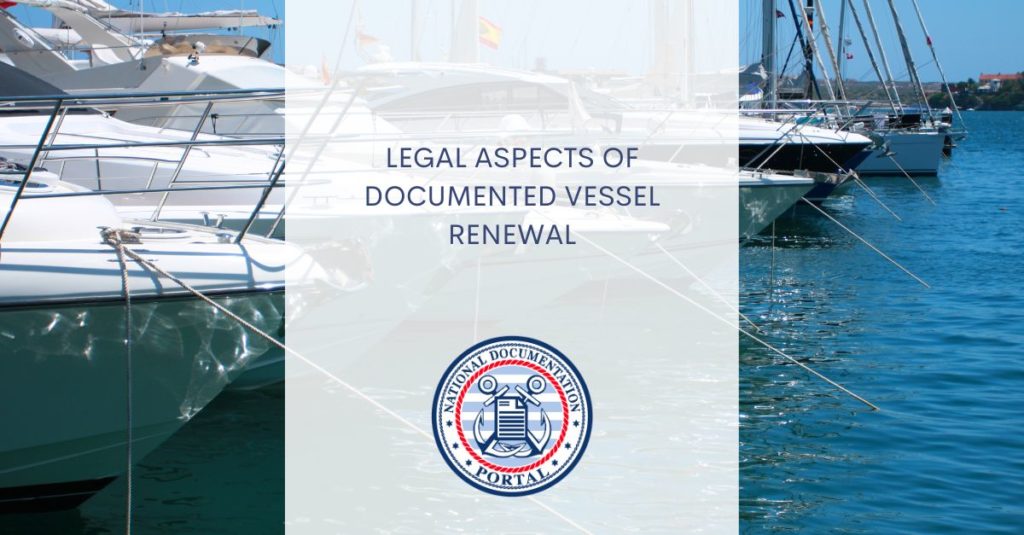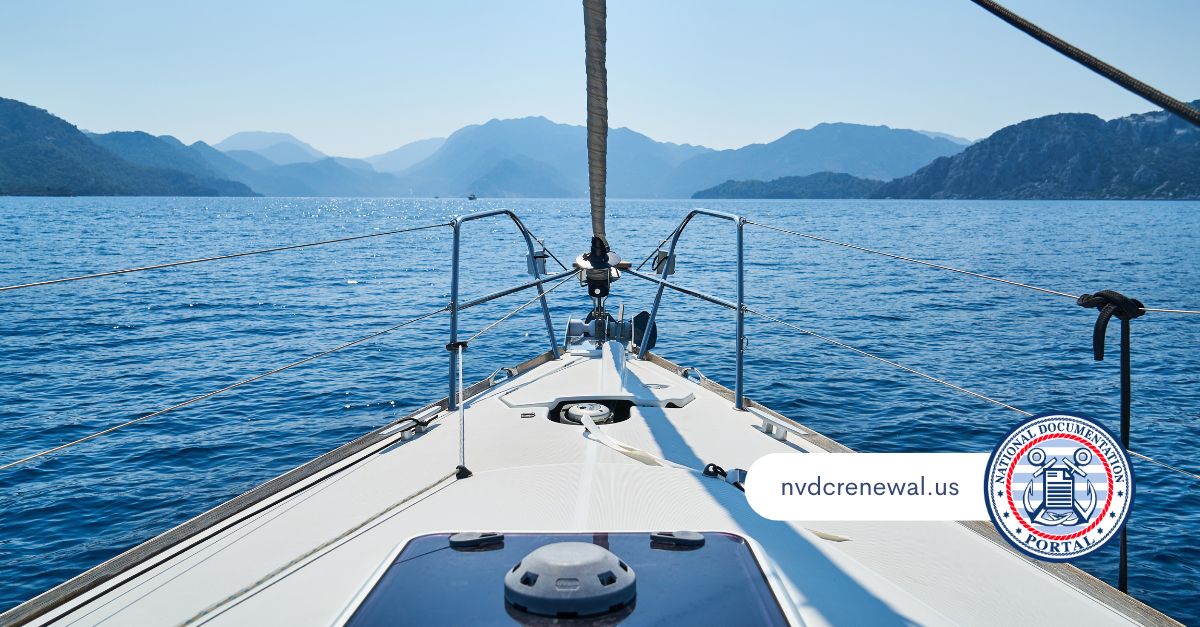Renewing the documentation of a vessel is not just a procedural task; it comes with a set of legal obligations and implications that all vessel owners must navigate. In this article, we delve into the legal aspects of documented vessel renewal, shedding light on the requirements and responsibilities involved, guided by the National Documentation Portal.
The Importance of Vessel Documentation
Legal Ownership
Documentation serves as proof of legal ownership, protecting the interests of the vessel owner and ensuring compliance with maritime laws and regulations.
Regulatory Compliance
Documented vessels must adhere to specific legal requirements, which include renewal to maintain their documented status and benefits.
The Documented Vessel Renewal Process
Timely Renewal
Owners must adhere to strict renewal deadlines to maintain the vessel’s documented status and continue enjoying the associated privileges.
Required Documentation
During renewal, owners must provide essential documentation and fees to the National Vessel Documentation Center (NVDC), adhering to legal requirements.
Legal Obligations
Regulatory Compliance
Documented vessels are subject to various federal regulations, such as vessel safety, environmental standards, and licensing, which must be upheld.
Tax and Fee Obligations
Owners must fulfill tax and fee obligations, including state taxes, customs duties, and other financial responsibilities as stipulated by relevant authorities.
Consequences of Non-Renewal
Loss of Documented Status
Failure to renew documentation leads to the loss of documented status, affecting the vessel’s legal ownership and privileges.
Legal Ramifications
Non-renewal may result in legal consequences, including fines, penalties, and difficulties in vessel operation.
The Role of the National Documentation Portal
Legal Assistance
The National Documentation Portal offers legal guidance and assistance throughout the documented vessel renewal process, ensuring owners adhere to all legal requirements.
Streamlined Procedures
We simplify the renewal process, making it easier for owners to fulfill their legal obligations and maintain documented status.
Legal Considerations Beyond Renewal
Environmental Compliance
Documented vessels must adhere to strict environmental standards, including waste disposal and pollution prevention.
Safety Regulations
Vessel owners are bound by safety regulations, which include equipment requirements, crew qualifications, and emergency preparedness.
Insurance and Liability
Insurance Requirements
Owners must maintain appropriate insurance coverage, protecting against accidents, damages, and liabilities in compliance with legal mandates.
Liability Protections
Documented vessels often come with limited liability protections, shielding owners from excessive financial obligations in certain situations.
Maritime Liens and Encumbrances
Understanding Liens
Owners should be aware of maritime liens, which can affect their vessel’s legal status, and take steps to resolve them as needed.
Managing Encumbrances
Addressing encumbrances, such as mortgages or claims, is a legal responsibility that vessel owners must handle diligently.
Legal Compliance as a Business Practice
Reputation and Reliability
Maintaining legal compliance enhances a vessel owner’s reputation and reliability, fostering positive relationships with authorities, clients, and partners.
Risk Mitigation
Legal compliance is a critical risk mitigation strategy, minimizing the potential for disputes, penalties, and financial losses.
Documented vessel renewal is not merely a bureaucratic process; it’s an integral part of maintaining legal compliance in the maritime industry. Owners must navigate a complex web of legal obligations, from regulatory compliance to tax responsibilities and environmental standards. By partnering with the National Documentation Portal, vessel owners can ensure that their renewal process aligns with legal requirements, safeguarding their documented status and minimizing legal risks. Legal compliance isn’t just a legal obligation—it’s a cornerstone of responsible vessel ownership and operation.


